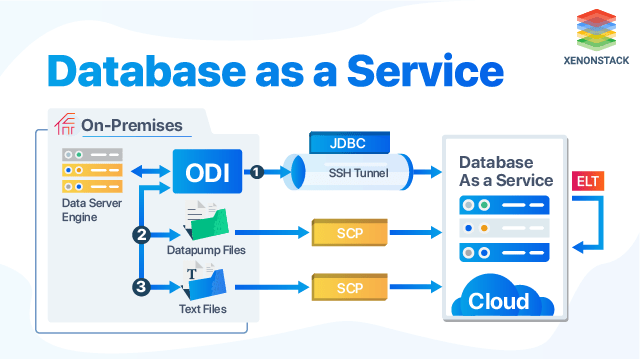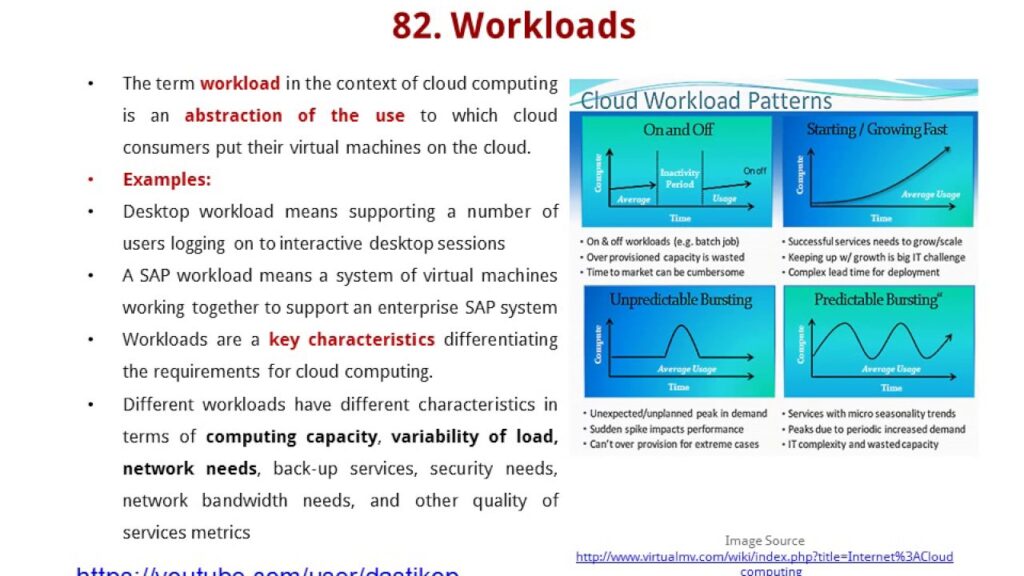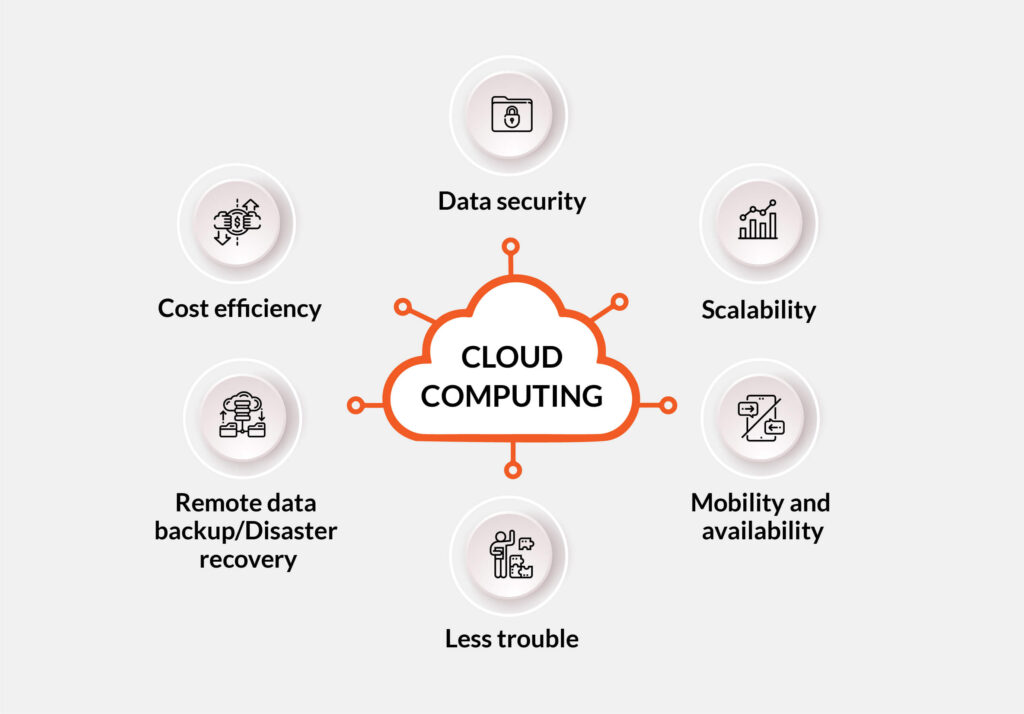In today’s technology-driven world, businesses are constantly looking for ways to increase efficiency and reduce costs. One solution that has gained popularity in recent years is cloud computing, which allows businesses to access computing resources and services over the internet. One particular cloud computing service that has become increasingly popular is Database as a Service (DBaaS). In this article, we’ll explore what DBaaS is, how it works, and why it’s becoming a popular choice for businesses.
At its core, DBaaS is a cloud computing service that allows businesses to outsource their database management to a third-party provider. With DBaaS, businesses don’t have to worry about the cost and complexity of managing their own database infrastructure. Instead, they simply pay a subscription fee to a service provider who takes care of all the database management tasks. This can include everything from database design and maintenance to security and backup and recovery. In the next paragraph, we’ll dive deeper into the benefits of DBaaS and why it’s becoming a popular choice for businesses of all sizes.

What is Database as a Service in Cloud Computing?
Database as a Service (DBaaS) is a cloud-based database solution that allows businesses to host their databases in the cloud for easy scalability and management. DBaaS solutions provide businesses with the flexibility to access their databases from anywhere, at any time, and with any device. DBaaS solutions are designed to automate the process of managing and scaling databases, allowing businesses to focus on their core operations instead of managing their databases.
What are the Benefits of Database as a Service?
Database as a Service provides businesses with a number of benefits, including scalability, flexibility, cost-effectiveness, and improved performance. With DBaaS, businesses can easily scale their databases on demand, enabling them to quickly accommodate expanding data sets and user loads. Additionally, DBaaS solutions provide businesses with the flexibility to access their databases from anywhere, at any time, and with any device. This makes it easier for businesses to keep their data secure and to ensure that the right people have access to the right data.
DBaaS solutions are also cost-effective, as they allow businesses to pay only for the resources they need and not for the entire infrastructure. Moreover, DBaaS solutions provide improved performance, as they reduce the need for manual scaling and maintenance, which can be time-consuming and error-prone.
What are the Different Types of Database as a Service?
Database as a Service solutions come in a variety of forms, including traditional managed services, Infrastructure as a Service (IaaS) solutions, and Platform as a Service (PaaS) solutions. Traditional managed services provide businesses with the tools and resources to manage their databases and scale them on demand. IaaS solutions provide businesses with access to virtualized infrastructures that are designed to host their databases. PaaS solutions provide businesses with access to a platform that is designed to automate the process of managing and scaling their databases.
How Can Businesses Get Started with Database as a Service?
Businesses that are interested in using Database as a Service can get started by selecting a provider that offers the features and services they need. When selecting a provider, businesses should consider the provider’s experience, features, and pricing. Additionally, businesses should ensure that the provider is secure and reliable. Once a provider has been selected, businesses should sign up for a plan and then configure their databases according to their specific needs.
What are the Challenges of Database as a Service?
Although Database as a Service provides businesses with a number of benefits, there are also some challenges associated with using DBaaS. One of the main challenges is data security, as businesses must ensure that their data is secure and protected from unauthorized access. Additionally, businesses must ensure that their databases are regularly backed up and that they have the ability to quickly restore their data in the event of an outage. Furthermore, businesses must ensure that their databases are kept up to date with the latest patches and security fixes.
Frequently Asked Questions
Database as a Service (DBaaS) is a cloud computing offering that provides access to a database management system in a virtualized environment. DBaaS provides the benefit of having the scalability and flexibility of cloud computing, with the robustness and security of a managed database platform.
What is Database as a Service in Cloud Computing?
Database as a Service (DBaaS) is a cloud computing offering that provides access to a database management system in a virtualized environment. DBaaS is designed to provide scalability, flexibility, and reliability for businesses that need to manage their databases. DBaaS is an excellent option for companies that need to quickly access a database without having to worry about the complexity of managing a physical database.
DBaaS provides the benefit of having the scalability and flexibility of cloud computing, with the robustness and security of a managed database platform. The cloud-based service allows businesses to quickly create and manage databases, without having to purchase and maintain physical hardware. Additionally, DBaaS can be used to access data from multiple sources, making it easier to integrate data from different sources. Additionally, DBaaS can be used to store and access large amounts of data, which is essential for businesses that need to manage large datasets.
What are the Benefits of Database as a Service in Cloud Computing?
One of the main benefits of Database as a Service in cloud computing is scalability. DBaaS allows businesses to quickly adjust to changing demands by scaling up or down as needed. Additionally, DBaaS provides high availability, meaning that the data is always accessible. This is especially important for businesses that need to access data from multiple sources, as DBaaS allows for data to be accessed from any device, no matter where it is located.
Another benefit of DBaaS is the cost savings associated with it. DBaaS eliminates the need for businesses to purchase and maintain physical hardware, meaning that businesses can save money by not having to purchase or maintain physical hardware. Additionally, DBaaS can be used to store and access large amounts of data, which can reduce the costs associated with storing and accessing large datasets.
What is the Difference Between Database as a Service and Traditional Database Management Systems?
The main difference between Database as a Service (DBaaS) and traditional Database Management Systems (DBMS) is the use of the cloud. DBaaS is a cloud-based service that allows businesses to quickly create and manage databases, without having to purchase and maintain physical hardware. In contrast, DBMS is a traditional database management system that runs on physical hardware.
Additionally, DBaaS provides the benefit of having the scalability and flexibility of cloud computing, with the robustness and security of a managed database platform. This means that businesses can quickly adjust to changing demands by scaling up or down as needed, without having to worry about the complexity of managing a physical database. Additionally, DBaaS can be used to access data from multiple sources, making it easier to integrate data from different sources.
How Secure is Database as a Service in Cloud Computing?
Database as a Service (DBaaS) is designed to be secure and reliable. DBaaS provides robust security measures, such as encryption and authentication, to ensure that data is protected. Additionally, DBaaS also provides high availability, meaning that the data is always accessible, even if the physical hardware fails.
Additionally, DBaaS can be used to access data from multiple sources, making it easier to integrate data from different sources. This means that businesses can control who has access to their data, and can also control who can view and edit their data. Additionally, DBaaS can be used to store and access large amounts of data, which is essential for businesses that need to manage large datasets.
What Types of Databases Can Be Used With Database as a Service in Cloud Computing?
Database as a Service (DBaaS) can be used with a variety of databases, including relational databases, NoSQL databases, and in-memory databases. Relational databases store data in tables and allow for complex queries to be performed. NoSQL databases are best suited for storing large amounts of data, and are ideal for applications that require fast access to large datasets. In-memory databases are used for applications that require real-time access to data and are often used in applications such as gaming and financial services.

In conclusion, Database as a Service (DBaaS) is a powerful tool that has revolutionized the way businesses manage their data. It allows for easy deployment and management of databases in the cloud, which has significantly reduced the cost and complexity of managing traditional in-house database systems. DBaaS provides businesses with the flexibility to scale their database resources up or down as needed, enabling them to adapt to changing business needs quickly.
As cloud computing continues to gain popularity, it’s clear that DBaaS will become an essential component of any business that wants to stay competitive. The benefits of DBaaS are numerous, including increased efficiency, scalability, and cost-effectiveness. With DBaaS, businesses can focus on their core activities while leaving the management and maintenance of their databases to the experts. In conclusion, DBaaS is a game-changer that is transforming the way businesses manage their data, and it’s a technology that no business wants to be left behind on.



